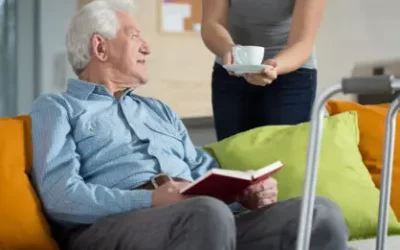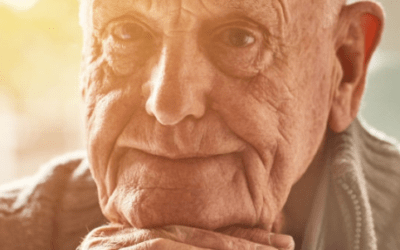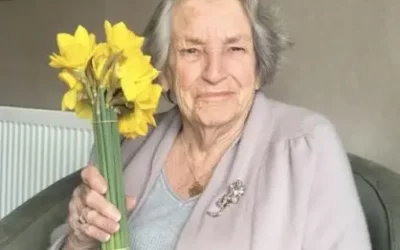Recently The Care Collection chatted to Ben Andrews, founder of the Empower Project, to hear about the amazing work he has been doing to support people with disabilities to lead more active lifestyles.
Ben recently featured on the BBC’s One Show!
What is the Empower Project?
Ben: I manage and deliver the Empower Project, which supports people with disabilities in Salford to lead more active lifestyles.
The project works by supporting people with disabilities for up to three months to engage in an activity of their choosing. During this time the project helps to improve the person’s confidence and motivation to attend the activity independently. At the same time, I work to up skill local leisure providers to accredited level, giving them the skills and knowledge to support people with disabilities with their activity. I also work with the person’s family, friends and support staff, providing activity specific practical awareness based sessions so they can offer this support long term.
The aim of the project is to create more inclusive, integrated communities in which people with disabilities have the opportunities, and knowledgeable support in place, to better manage their health and wellbeing.
What background do you have?
Ben: I started working on Empower when I was 17. I gained my Level 2 Gym Instructor qualification and started supporting family members with visual impairments to the local gym. This got me thinking that there must be more people with a disability who would like to exercise and increase their fitness but might need some support to do this. So, I started volunteering around Salford, delivering healthy lifestyle sessions for people with a range of disabilities; wheelchair users, people with learning disabilities, people with hearing impairments, as well as assessing what was available for people with disabilities to keep active, finding a real lack of opportunities.
When I was 19 I tried to put a report together to state a case for a disability specific gym instructor. Having never written a report, it had no rationale, no evidence base and I wasn’t really sure what to do with it so unsurprisingly it didn’t go anywhere, but I knew what I wanted to do and knew there was a need so didn’t give up on it.
Knowing I’d need more knowledge and experience to make this work I approached Salford University and explained my plans and gained a place doing an Exercise and Health Sciences degree. I used my time at university to research my field, with particular emphasis on disability, exercise and the heightened prevalence of long-term conditions for people with disabilities.
By the time I left university I was able to articulate a clear case as to the importance of people with disabilities leading healthy, active lifestyles. Luckily enough, NHS Salford CCG had just released an Innovation Fund to pilot new ideas to improve the health of Salford residents and one of their target groups was people with disabilities. Being right up my street, I compiled all of my personal and professional experience and academic learning into a bid and successfully submitted it to NHS Salford CCG who have funded the Empower project since 2015.
What inspired you to help individuals with disabilities?
Ben: I suppose first off growing up around disability has given me a bit of a different mindset and perspective on what disability is and the barrier society presents. It’s something that my family have always overcome and I’d hope to support others to do the same.
Secondly, I don’t think it’s right that anybody should be any heightened risk of ill-health because of something they have no control over. People with disabilities face massive health inequalities and in many cases it’s not down to the actual disability but due to the barriers people with disabilities face when trying to manage their health. For example, there is no physiological reason that people who are blind should be overweight or obese, but they are at increased risk of being so due to the lack of opportunities they have to maintain a healthy weight through activity.
Finally, and from my point of view the most important, I hope to change perceptions of people. From my experience, in many cases people don’t acknowledge that people with disabilities can keep active and lead healthy lifestyles. It feels like there’s an acceptance that they cannot be healthy or active, so there’s no planning in place for them to do so. I hope that by creating a platform to showcase people with disabilities keeping active, this perception will change and it’ll no longer be an afterthought.
What is the most satisfying aspect of your job?
Ben: The idea behind Empower is to support people until they are self-sufficient and able to be active independently. The project trains up those around the individual, for example local leisure staff to accredited level, as well as family, friends, support staff and volunteers through practical awareness based sessions. This in turn broadens the network of knowledgeable support available for people with disabilities to keep active, and live more healthily beyond my support.
So in answer to your question, the most satisfying aspect of my job is when the person I’ve been working with no longer needs me for support and they are able to continue independently or with the now up skilled support in place.

What general tips and advice can you give to anyone with a disability to get fit and healthy?
Ben: I suppose that’s all dependent on the person’s impairment, but here’s a few generic tips;
- Like non-disabled people, people with disabilities can keep active and be healthy. From my experience, there seems to an assumption that disabled equals unhealthy and that’s not the case. Most of us can move more in some way and reap the benefits of an active lifestyle and it’s particularly important for people with disabilities to do so – it’s about finding what’s right for you.
- Set some goals, for example improving mobility in specific limbs, walking without aid or losing weight. If it’s important to you, you’ll be more motivated to work towards it.
- Look for something that you enjoy and allows you to work towards your goals and aspirations. This way it’ll be much easier to maintain the changes long term. Whether that is a sport, an exercise based activity like the gym or an activity such as walking or gardening. Even if you can’t consciously move your body, use some kind of supported, passive movement facilitated by someone else or passive machinery.
- Don’t always look for segregated, disability specific groups. Look for some mainstream groups that might be of interest and work with the centre or activity to accommodate your needs. In most cases they’ll be happy for the new custom and it opens up the door to other people with disabilities in the future.
The Care Collection has clients with learning difficulties and disabilities. What advice can you give when it comes helping these people stay active and keep fit?
Ben: From my experience, I’d say keep the activity as fun as possible and make sure that it motivates and stimulates the person in some way. People with learning difficulties often aren’t motivated by more traditional goals like weight loss or muscle gain. It might be more around having fun, making new friends or trying something new. It’s important to be innovate and open-minded. Try to incorporate the person’s motivations into whatever activity you are hoping to deliver or support the person to. You’ll get the same health benefits and achieve the same goals, it’ll just be much more interesting and enjoyable for the person.
What tips would you have for our older clients who aren’t as active and those who are wheelchair users?
Ben: I’d go back to my previous comment – generally we can all move more and be active in some way. There’s a lot of low intensity exercise classes out there, local exercise referral schemes, walking football, netball, boules and many more. It’s also never too late to pick up on an old activity that you used to enjoy; usually providers are pretty good at adapting the sessions if needed. For wheelchair users, it’s particularly important to keep active. There’s lots of research which highlights how sitting down too often can be massively detrimental to our health. Try and get out of your chair as much as possible, walk for short distances. If you can’t walk then opt for a manual wheelchair. Get involved in some chair based exercise classes; there are lots out there and even ones that you can buy on DVD to do at home. Even if you can’t physically move your limbs yourself, have someone else move your body for you or use passive machinery, you’ll still reap some of the benefits of movement- improved blood circulation, increase muscle tone and reduced muscle wastage to name a few.
What do you see for your future and do you have any plans to contact other CCGs to fund the Empower Project?
Ben: Yes, in the near future I’d like to secure further funding to develop the Empower model. Once a robust model has been developed, I’d like to expand the initiative to other localities throughout Greater Manchester initially and then further afield, using the project to support as many people with disabilities as possible to lead more active, healthy lifestyles.
To find more information about Ben and the Empower Project, please visit his Social Media channels:



0 Comments